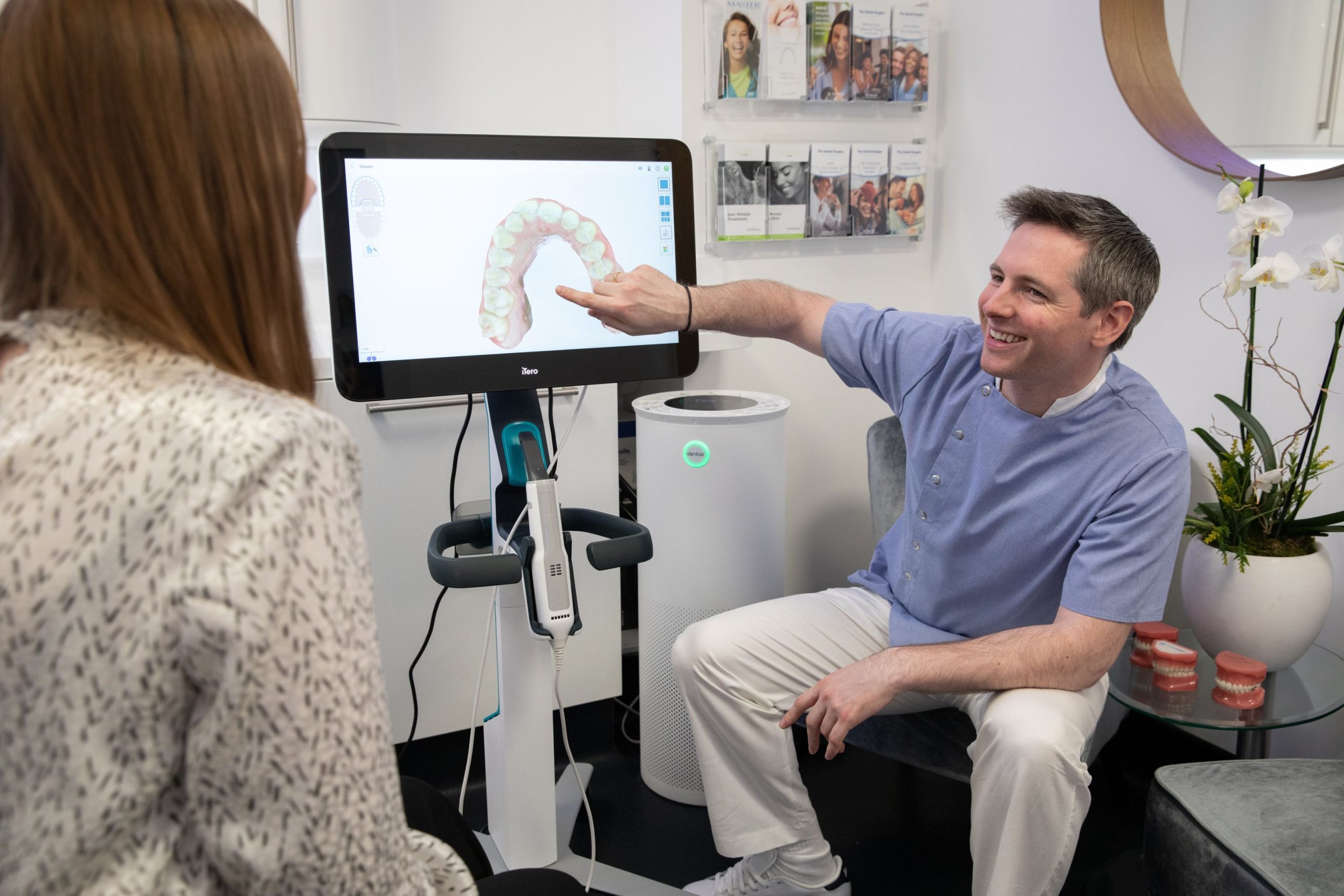-
Categorised as:
- General Dentistry
- Dental Hygiene
- Periodontics
- Teeth Replacement
- Teeth Whitening
How to Fix Smoker’s Teeth
We’re sorry to have to break this to you, but smoking is terrible for your teeth and overall oral health. It causes both cosmetic damage and more serious problems such as gum disease, potential tooth loss and even mouth cancer.
In this post, we will look at what is meant by the term smoker’s teeth, what smoking can do to teeth and oral health, how to treat any problems and why any smoker really should try to stop – or at least cut back on their habit.
The Obvious Problems
The effects of smoking are clearly apparent on many smokers’ teeth – the teeth have yellowed, and in some cases, turned almost a solid brown colour. Accompanying this stained appearance there is a high likelihood of bad breath (halitosis) due to the build-up of bacterial plaque.
These physical by-products of smoking can affect self confidence and self-esteem. Anyone who has a concern that their teeth are heavily stained and is also aware that they have bad breath is likely to try to hide their teeth – potentially smiling less and being less confident in conversation.
These obvious problems are reason enough to seek dental treatment and also to quit or cut back on smoking, but they can also be signs that more serious damage could be present.
Long Term Damage to Teeth Caused By Smoking
Stained teeth and bad breath can be treated by dental professionals (we will talk about treatments later), but smoker’s teeth can also be a sign of more pressing health-related concerns.
Smoking increases the risk of gum disease, also known as periodontitis, a condition that can lead to erosion of the bone under the gums causing teeth to become loose and potentially even leading to tooth loss. Periodontitis has also been linked to a range of other serious conditions including diabetes, increased risk of strokes and problems in pregnancy.
By smoking, you double the likelihood of getting periodontitis according to data from the Centers for Disease Control and Prevention (CDC).
Smoking also reduces the success rate of restorative surgery – like dental implants – and adds to the healing time for any dental work due to blood vessels having been damaged by years of smoking.
Smoking is also a factor in the vast majority of mouth cancer cases. Statistics from the American Cancer Association show that in 90% of cancers affecting the mouth, lips or tongue, the patient is a smoker or consumes tobacco in some other way (chewing for example).
Treatments for Smoker’s Teeth
It might not be what you want to hear but key to halting the damage caused by smoking and reversing the effects of smoker’s teeth is to stop smoking. If quitting completely is not possible, even cutting back on consumption helps.
Increased risk of gum disease
Anyone who smokes a pack a day or more has six times the chances of getting gum disease compared to a non-smoker. Smoking half a packet a day reduces this to three times the risk. Three times the risk is still alarming, but at least it halves the risk compared to heavy smoking.
People who continue smoking after the first treatment for mouth cancer have a 37% chance of the cancer returning. For those who stop, there is just one sixth the risk of this cancer returning.
To be blunt, smoking destroys oral health – and that’s without mentioning the other effects of smoking.
There is no easy cure that will reverse all the side effects of smoking and keep the mouth healthy while the habit is maintained. Mouth washes and even specialist toothpastes might have a short-term effect, but the buildup of plaque will continue and the risk of serious conditions grows.
Some over the counter treatments might be suitable for cosmetic purposes, but it is essential to check with a dentist first – there could be underlying damage that is important to treat prior to any whitening or cosmetic treatment.
“But my gums don’t bleed”
Smokers are often unaware that they have gum disease. It is well known that a common sign of gum disease is bleeding gums when brushing, however many smokers may see that their gums don’t bleed and naturally, but mistakenly, assume this means their gums are relatively healthy.
What is actually happening is that the smoking has reduced the blood flow to the gums (this is also why any dental treatment takes longer to recover from, and infections are more likely). The gums do not bleed simply because there is much less blood circulating and although gum disease can be present (it is far more likely to be present than for a non-smoker), the most obvious sign of the problem won’t be.
With cavities also more likely, the smoker has a range of potential dental issues to check for. If you like an analogy, it’s like having a house that has suffered some subsidence and has some nasty cracks in the wall. Rather than plastering over them and then painting, it is far better in the long run to get the cracks assessed and properly fixed. Otherwise, the house might fall down…
Peace of mind
By having regular checkups, you can know that any signs of cancer will be spotted early, so too signs of gum disease. Any existing issues can be rectified, whether that is filling cavities, using a gum graft procedure to cover the roots of teeth, or even extracting loose teeth and replacing with a dental implant.
Even the aim of whitening teeth should be discussed with the dentist as the best course of treatment will vary by patient – it might be that seeing the hygienist is the best option, or specialist toothpastes might be an option (it is worth noting that many specialist toothpastes are abrasive and so their use should be discussed with the dentist too).
Why You Really Need To Quit
The truth is that without stopping, the risks associated with smoking will remain, and no matter how often you visit the dentist and hygienist it will always be a case of trying to manage an imperfect situation. Smoking damages teeth and increases the risk of serious conditions.
On the positive side, oral health does start returning to normal on quitting and research suggests that 11 years after quitting, a former heavy smoker would have no more risk of having gum disease than a nonsmoker.
If you are looking to quit, a dentist can help here too with recommended medications to help kick the habit – seeking help is preferable to switching to E-cigarettes or other alternatives that can carry health risks of their own.
At The Dental Surgery, located at the Corn Exchange, London, we have a huge level of experience in helping to tackle the effects of decades of smoking on patients’ teeth.
We also have a caring, understanding ethos doing all we can to put patients at ease, many of whom have gone many years without seeing a dentist as problems have escalated, leaving them self-conscious of their teeth and nervous to seek help.
Hopefully the reward, whiter teeth, better breath, far less chance of gum disease and mouth cancer, make the undeniable difficulty of quitting worthwhile. We wish you luck!
Do you have a specific question?
Get in touch with us today.



